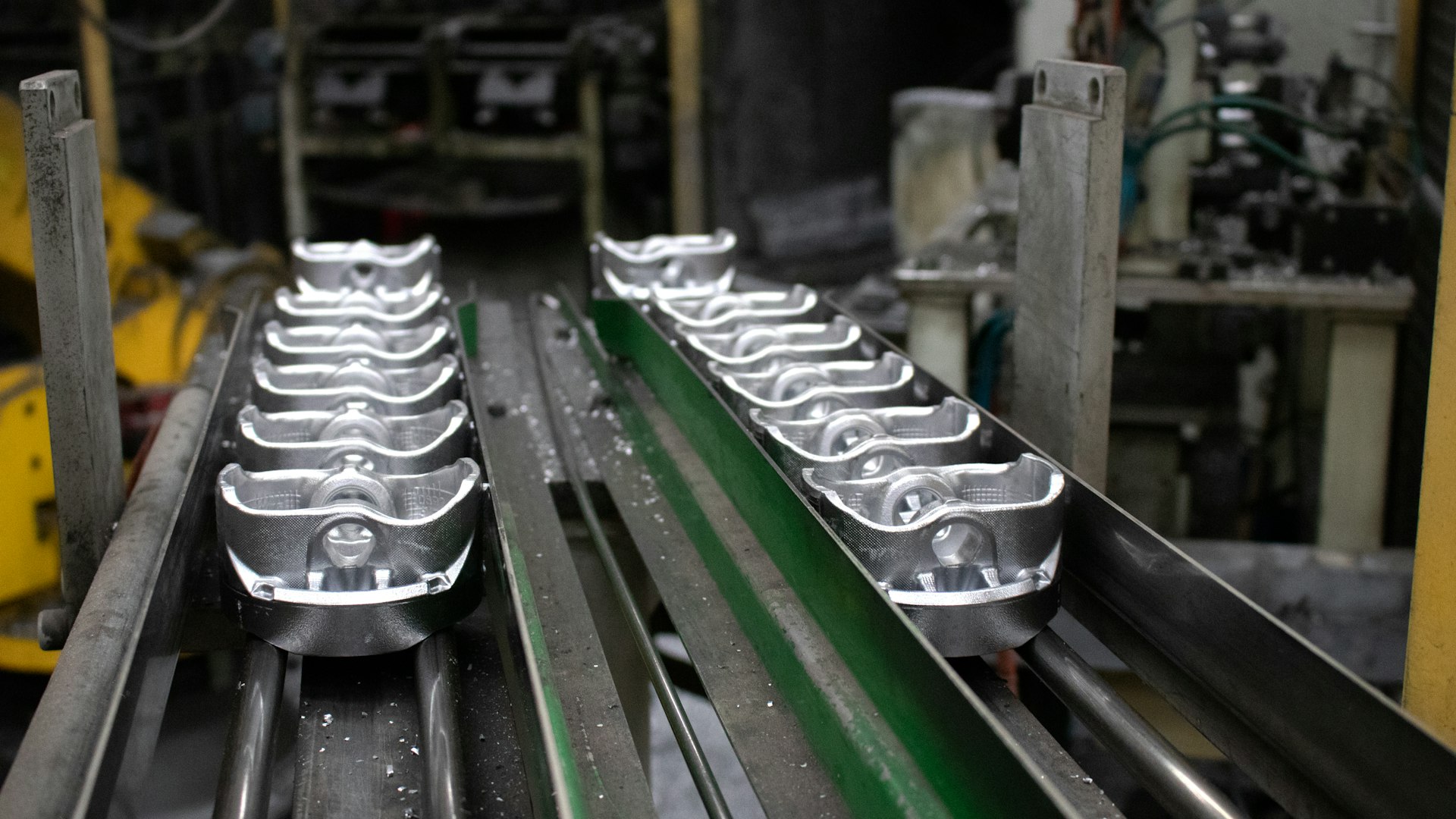Driving Global Progress: How International Collaboration Transforms Automotive Technology

Photo by Kin Li on Unsplash
Introduction: The Power of International Collaboration in Automotive Technology
International collaboration in automotive technology has become a cornerstone of industry progress. In an era defined by rapid technological change, sustainability challenges, and evolving consumer expectations, global partnerships offer a pathway to innovation, efficiency, and resilience. By pooling resources, sharing expertise, and aligning strategic goals, automotive organizations worldwide are driving breakthroughs that would be difficult-if not impossible-to achieve alone. [1]
Accelerating Technological Innovation Through Collaboration
One of the most significant benefits of international collaboration in automotive tech is the acceleration of technological innovation. When companies and countries work together, they combine unique perspectives and expertise, leading to faster development cycles and more robust solutions. For instance, the partnership between Ford and Rivian in electric vehicle (EV) development exemplifies how shared research and development (R&D) can enhance battery efficiency and performance, bringing about profound improvements in sustainable transportation. [1]

Photo by Erik Mclean on Unsplash
Collaborations between traditional automakers and technology giants have also propelled the advancement of autonomous driving systems. By integrating automotive engineering with cutting-edge digital technologies, these alliances accelerate the deployment of safe, efficient, and intelligent mobility solutions.
How to Access Innovative Collaboration: Organizations seeking to participate in such partnerships can:
- Join industry consortia focused on EV and autonomous vehicle research
- Attend international automotive technology conferences
- Reach out to research institutions and government agencies for joint R&D programs
- Engage with multinational suppliers and technology firms through formal partnership agreements
Consider searching for “international automotive R&D partnerships” or contacting national trade organizations for opportunities to participate in collaborative projects.
Driving Efficiency, Productivity, and Cost Savings
Collaboration enables automotive companies to streamline operations, enhance productivity, and achieve significant cost savings. By sharing resources and knowledge, partners reduce duplication and accelerate project timelines. Ford’s collaboration with tech firms, for example, shortened their autonomous vehicle product development cycle by up to 30%, allowing quicker adaptation to market changes. [2]
General Motors and Honda’s joint efforts on hydrogen fuel cell systems led to shared R&D expenses and facilitated advances in eco-friendly technology. This approach minimizes financial risk while maximizing technological output.
How to Implement Collaborative Strategies: To leverage these benefits, organizations can:
- Establish joint research facilities with international partners
- Develop shared supply chain management systems
- Negotiate collaborative purchasing agreements to pool buying power
- Participate in cross-border training and knowledge exchange programs
Interested businesses can consult industry trade associations or explore government-sponsored innovation hubs to initiate collaborative projects.
Enhancing Customer Experience and Brand Value
Global partnerships allow automotive companies to deliver superior customer experiences. By integrating technologies and services from diverse partners, automakers can offer innovative products and seamless user interfaces. Volvo’s collaboration with Google to integrate the Android operating system into vehicles is a prime example, resulting in a 25% increase in customer satisfaction and loyalty. [2]
Co-branding initiatives and joint marketing campaigns further expand market reach and enhance brand reputation. Auto parts companies engaging in B2B partnerships benefit from cross-promotion and shared market analytics, leading to improved understanding of customer needs and market trends. [5]
How to Access Enhanced Customer Solutions: Organizations can:
- Collaborate with tech firms to integrate user-friendly infotainment systems
- Participate in joint market research projects to better understand global consumer preferences
- Engage in cross-promotional activities with established brands
For actionable steps, companies may reach out to leading technology providers or monitor automotive marketing forums for partnership opportunities.
Optimizing Supply Chains and Resilience
International collaboration is critical for supply chain optimization, especially in the face of global disruptions. Partnerships between carmakers and suppliers-like Toyota and Denso’s partnership in semiconductor manufacturing-enable proactive information sharing, smarter decision-making, and early identification of supply chain risks. [3]
Collaborative demand forecasting and joint logistics planning can significantly reduce costs, improve delivery times, and increase overall satisfaction. [5]
How to Enhance Supply Chain Resilience: Industry participants can:
- Implement shared inventory management systems with international suppliers
- Participate in global supply chain councils for early risk identification
- Leverage open data platforms for market trend analysis
Organizations may contact supply chain technology vendors or inquire about international supply chain conferences for networking and knowledge-sharing opportunities.
Fostering Sustainability and Regulatory Compliance
Global partnerships play a pivotal role in advancing sustainability and navigating regulatory complexities. Automakers are increasingly working with governments and academia to define standards for electric vehicles, autonomous systems, and shared mobility. [4]
Strategic alliances such as the Renault-Nissan-Mitsubishi Alliance have invested heavily in EV infrastructure and technology, while manufacturers like GM and Tesla actively engage their supply chains to improve specifications and promote eco-friendly innovation.
How to Engage in Sustainable Collaboration: To participate, organizations can:
- Join international standards bodies for automotive sustainability
- Collaborate with research institutions on eco-friendly technology development
- Monitor government agency websites for regulatory updates and partnership programs
Prospective partners may search for “global automotive sustainability alliances” or contact relevant government departments for program details.
Challenges and Solutions in International Collaboration
While the benefits are clear, international collaboration can present challenges such as intellectual property concerns, cultural differences, and regulatory hurdles. To overcome these, organizations should:
- Develop clear legal frameworks and contracts for joint ventures
- Invest in cross-cultural training programs for staff
- Engage specialized legal counsel for navigating international regulatory landscapes
Alternative approaches include leveraging neutral third-party organizations to facilitate negotiations and using digital platforms for secure communications.
Key Takeaways and Next Steps
International collaboration in automotive technology is essential for driving innovation, efficiency, customer satisfaction, supply chain resilience, and sustainability. By pursuing strategic global partnerships, automotive organizations can position themselves for long-term success and industry leadership. For those seeking to initiate or expand collaborative efforts, consider:
- Searching for “international automotive technology consortia”
- Contacting national automotive trade organizations
- Participating in global industry conferences and workshops
- Exploring joint R&D programs with universities and research institutions
References
- [1] Turbo Marketing Solutions (2024). Automotive Industry Partnerships: Collaborating for Innovation and Competitive Advantage.
- [2] KanBo (2024). Driving Innovation and Sustainability: How Strategic Alliances are Transforming the Automotive Industry.
- [3] A2 Global Electronics (2024). The Road To Collaboration: Carmakers And Suppliers Are Transforming The Automotive Chip Market.
- [4] Electronics.org (2024). Collaboration with Electronics Industry Ensures Automakers’ Needs are Met.
- [5] AM Auto Parts (2024). The Benefits Of B2B Partnerships In The Auto Parts Industry.



